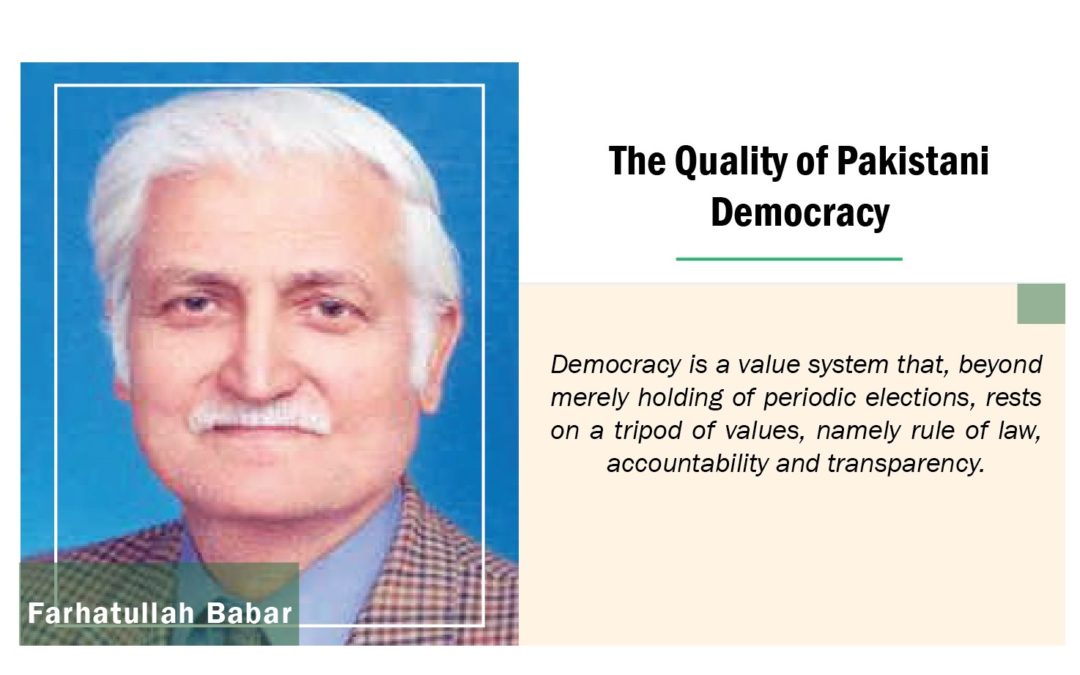
The Quality of Pakistani Democracy
September 15 is celebrated every year as the International Day of Democracy to review the state of democracy in the world and uphold the principles and values of democracy. It is therefore apt to review the quality and state of democracy in Pakistan on this day....

The State of our Democracy
Democracy is an evasive idea, an ideal that all polities are trying to achieve but somehow fall short of. Countries in transition to a democratic rule, presumably from authoritarianism, use the term democratization to describe their journey. It would be interesting to...
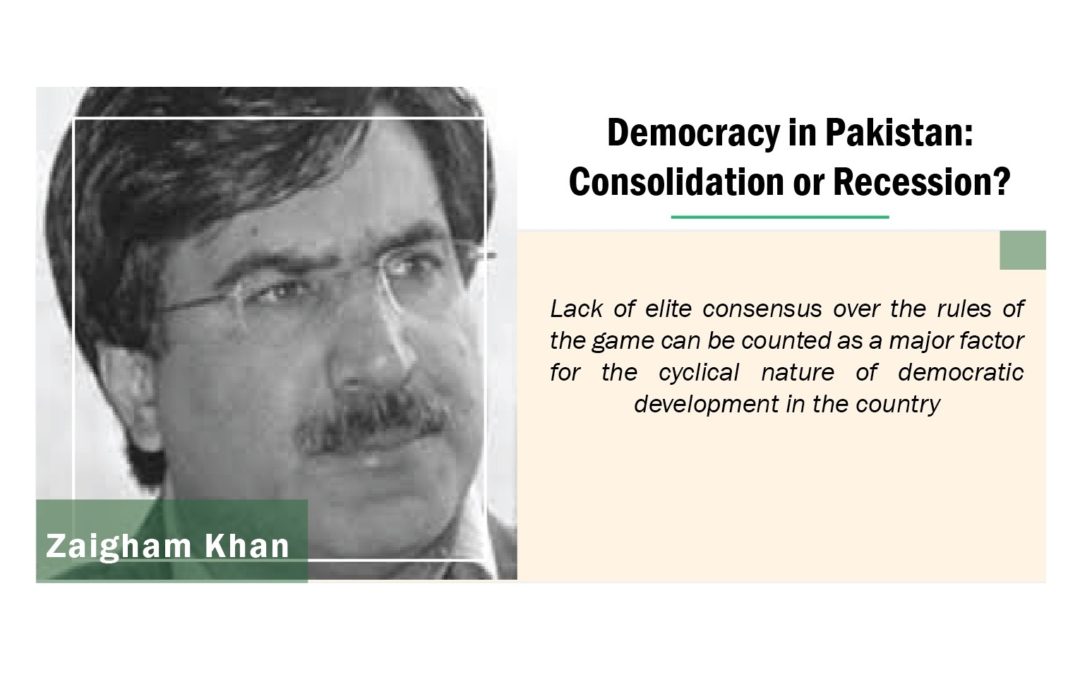
Democracy in Pakistan: Consolidation or Recession?
Two years ago, Pakistan completed a decade of democracy after returning to a democratic set up in 2008. For the second time in our history, a democratic period had lasted for a decade. In that year Pakistan also passed Huntington’s ‘two turnover test’. According to...
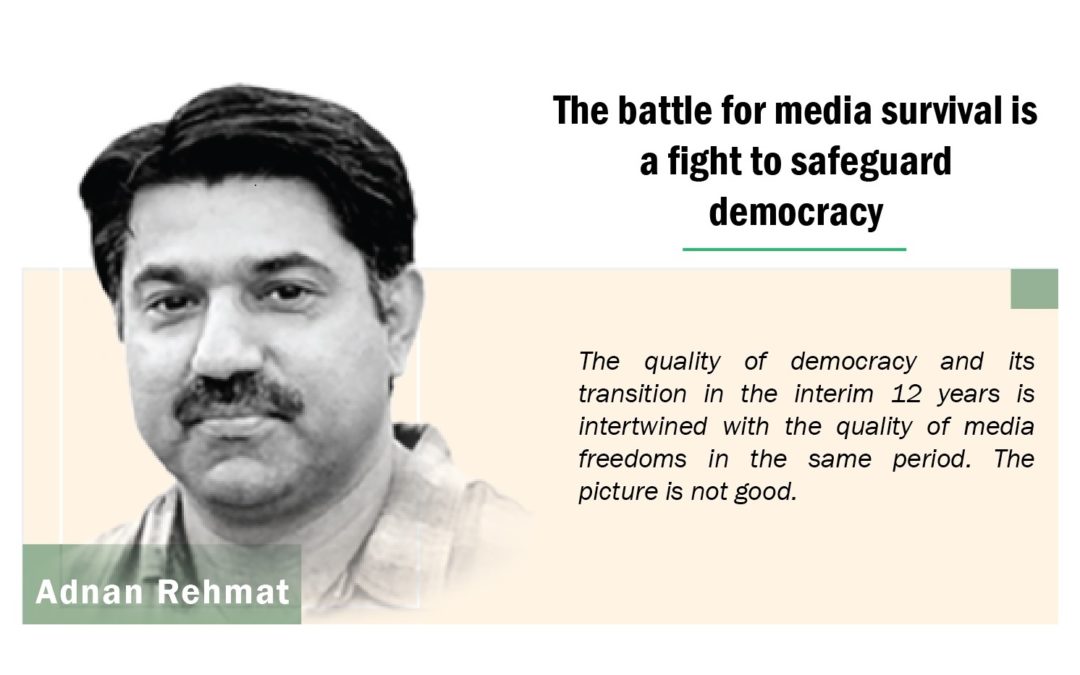
The Battle for Media Survival is a Fight to Safeguard Democracy
A democracy is as good as the state of freedom of expression and right to information that is functionally practiced in a society. The latest in the series of transitions back to democracy from direct military rule in Pakistan started in 2008 and is a process still...
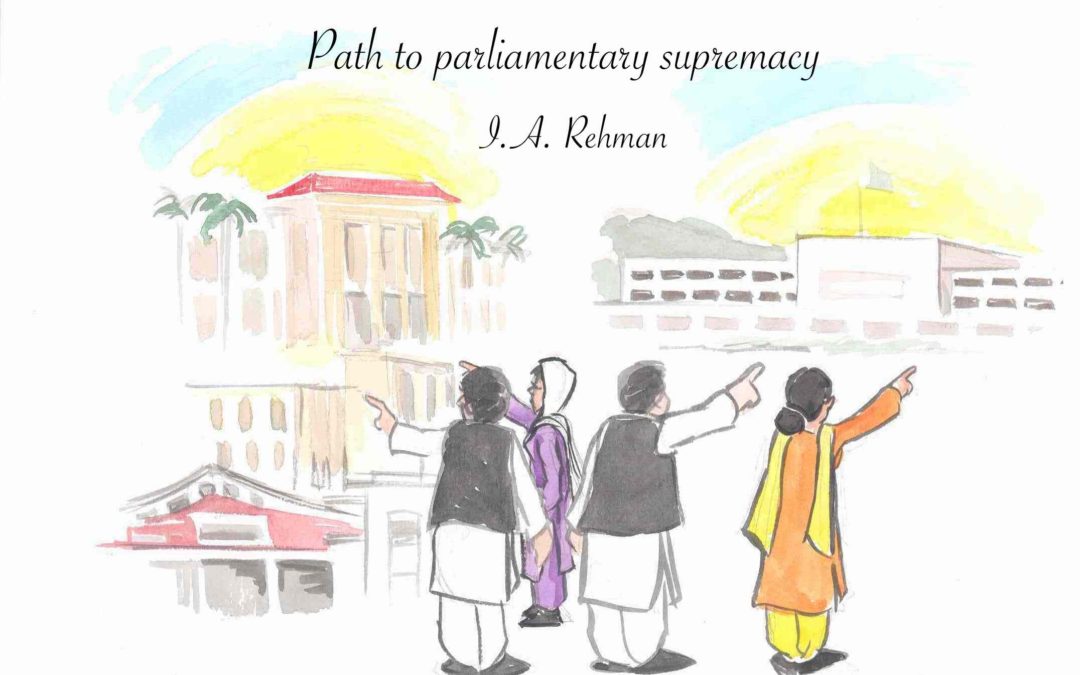
Path to Parliamentary Supremacy
Let me begin by telling two stories. In the aftermath of the Sino-Indian war of 1962 President Ayub Khan sent a message to the Indian Premier, Jawaharlal Nehru, through A.K. Brohi, who had served as Pakistan High Commissioner in New Delhi. Nehru said he had no time to receive Brohi as the Lok Sabha was holding a debate on the failure of the foreign policy. Eventually he invited Brohi to see him in his room at the parliament house at lunch time. Brohi noticed that the Lok Sabha proceedings were being relayed to the PM’s room. He asked Nehru why he exposed himself to bitter attacks in the Parliament while he could listen to the debate in the comfort of his special room.

A Dysfunctional Parliament
The ruling dispensation in Pakistan under Prime Minister Imran Khan has displayed utter disregard for parliamentarism. The National Assembly has been effectively reduced to a forum for keeping the PTI government in office in numerical terms, i.e. by conjuring up a majority of sorts on the floor. While the Senate remains a citadel of opposition — even after the latter’s failed attempt to remove its Chairman — the Upper House has been redundant except for laying out the turf by speakers from the two sides. It is an empty shell.
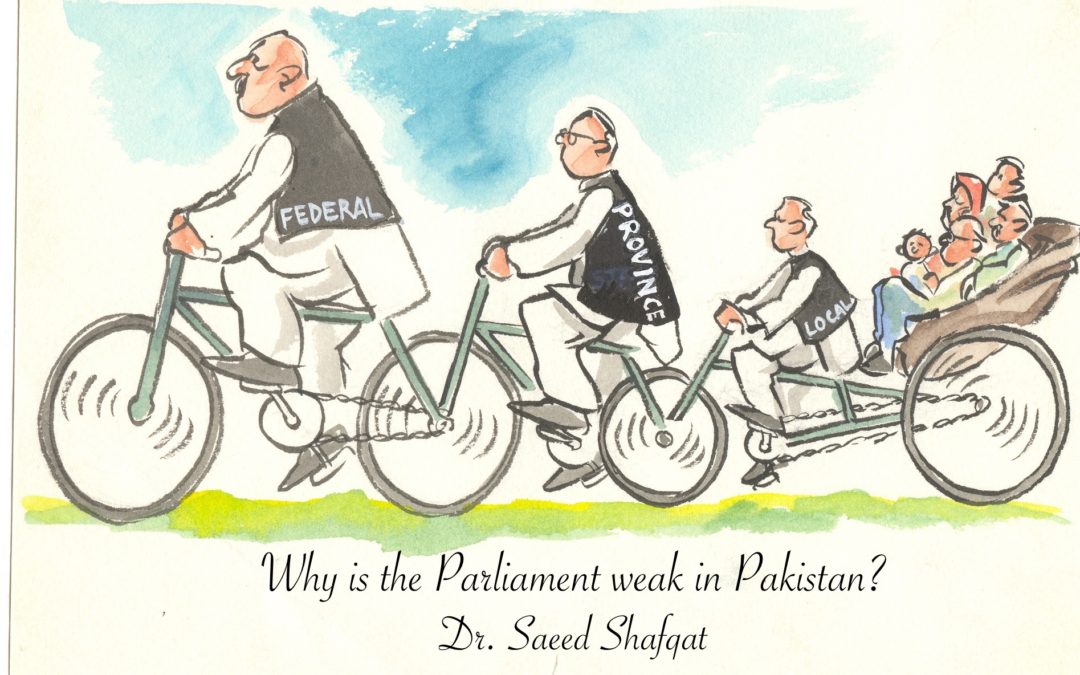
Why is the Parliament weak in Pakistan?
Democratic systems around the world are under duress. Pakistan is no exception. Let me identify three trends that are reshaping the functioning of democracies and the parliaments.
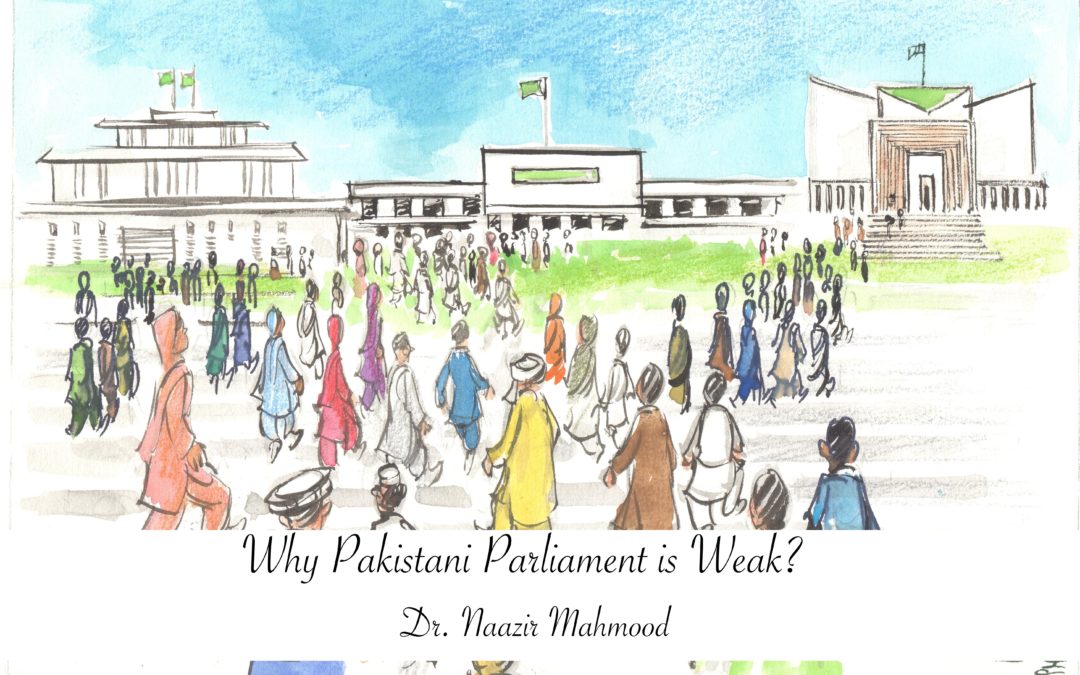
Why Pakistani parliament is weak?
When you pose this question, you are looking at the flip side of the parliament. Perhaps a better way to start our discussion is to ask ourselves, ‘what makes a parliament strong? If we get an answer to this question we may apply some of them to Pakistan and understand why the parliament in Pakistan is weak.

Centrality of the parliament in political system
In strong democracies of the modern world the parliament is deemed the most superior institution. It is considered the mother of all institutions in the modern state and a famous saying is that ‘if Parliament decides to call the day a night nobody can stop it.” Pakistan is among such countries where the institution of parliament has been paid less attention and generally considered a distressing institution.
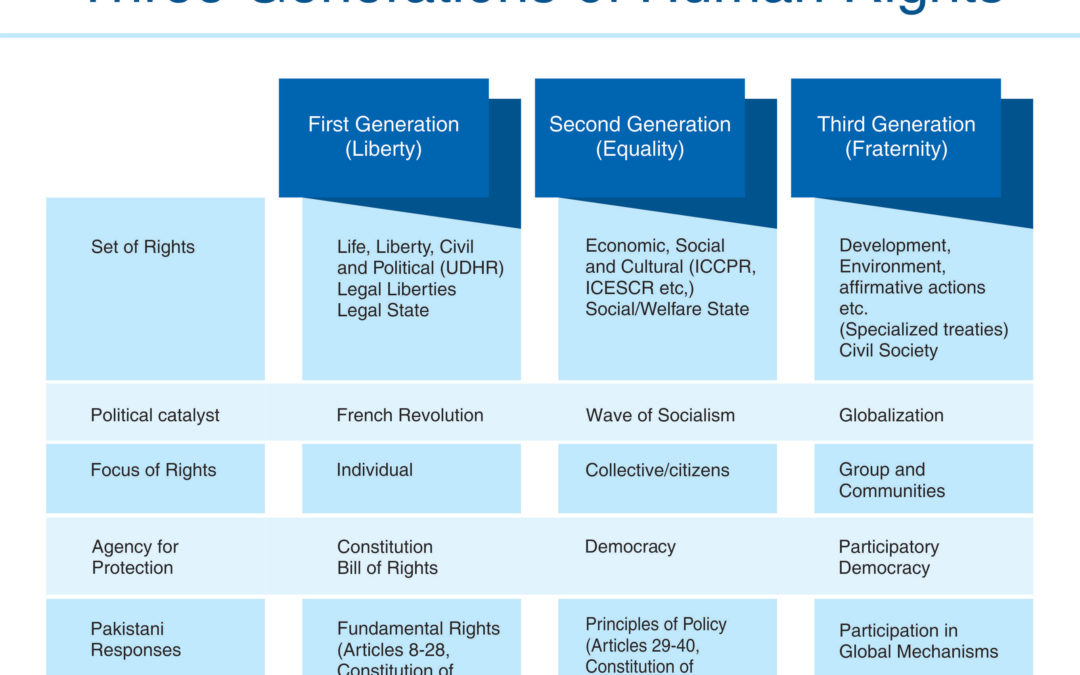
Federal Ministers for Human Rights
In Pakistan Ministry of Human Rights has traversed a staggered and checkered course over time. Initially, it was established as a cell in the Ministry of Interior to deal with Human Rights issues which were transferred to the Ministry of Law, Justice and Parliamentary...

